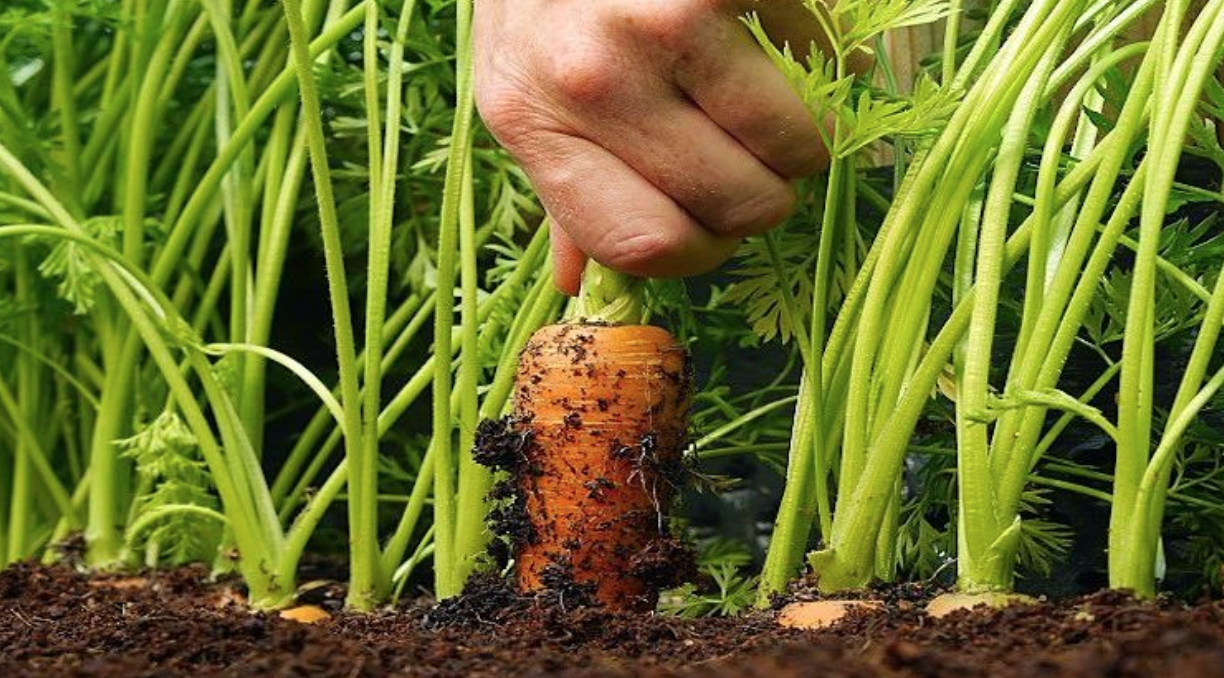
In an attention economy it is a compelling offer for a website to offer access to an audience of 2.4 billion people (Facebook) or promise that 90% of all internet searches start with you (Google). It would seem as though the only rational choice would be to do business on their platform.
It’s here that the most important business lesson my father taught me comes to mind:
Never grow your vegetables in someones else’s garden.
The advice is exactly as it sounds. Make sure your own and control where you build your assets and revenue streams. If you don’t there is always the risk that the landlord will change the rules without notice and pull up your roots.
In the digital platform economy most people and companies are growing their veggies in other peoples gardens. While it is very clear there’s an upside to this strategy; speed, simplicity, scale. But the downside is obvious and almost always comes to bear. Eventually the platform landlords increase the rent, or kick you out – but only after you’ve tended their garden, or renovated their house.
The weird thing about this, is that it keeps on happening and people and businesses keep on falling for same trick. Let’s go through a little bit of internet platform history to remind ourselves of the downside and even help us with our Future Proof Platform Strategy Development.
The Likes Deceit:
Marky Zuck said; “Yo, brands out there, generate ‘Likes‘ for your brand on our platform, and you’ll be able to have constant contact with the consumers and fans of your brand. Whenever you post an update, they’ll see it, and you’ll have a direct connection.” Then after brands spent many millions of dollars building a brand following on Facebook young Marky changed his mind. He said “Yeah, about that – well, I’ve changed my mind, and now to reach those same people you invested in my ‘Platform’ to connect with – you need to pay me again – to advertise to them. They are no longer going to see your updates in their news feed.”
Boom – just like that – he pulled up their roots.
The Google Page Rank:
Sergey & Larry said; ‘Yo, businesses out there, we are different to Yahoo and other searches engines (there used to be many). We’re all about helping people find exactly what they are after and sending them immediately to you – We are not a portal like Yahoo. Get on board. Then every website in the world optimised for Google. Then Google became so good at everything and so big, they changed their mind. Google is rapidly becoming a portal where they scrape their suppliers information and keep customers in the Google ecosystem – increasingly they don’t send people who search anywhere. They satisfy their needs right on the Google homepage. Just check out the first listing for my searches today for the Snow reports, Weather reports, The AFL ladder and even Flights.
Sorry about that Snow & Weather Channels…
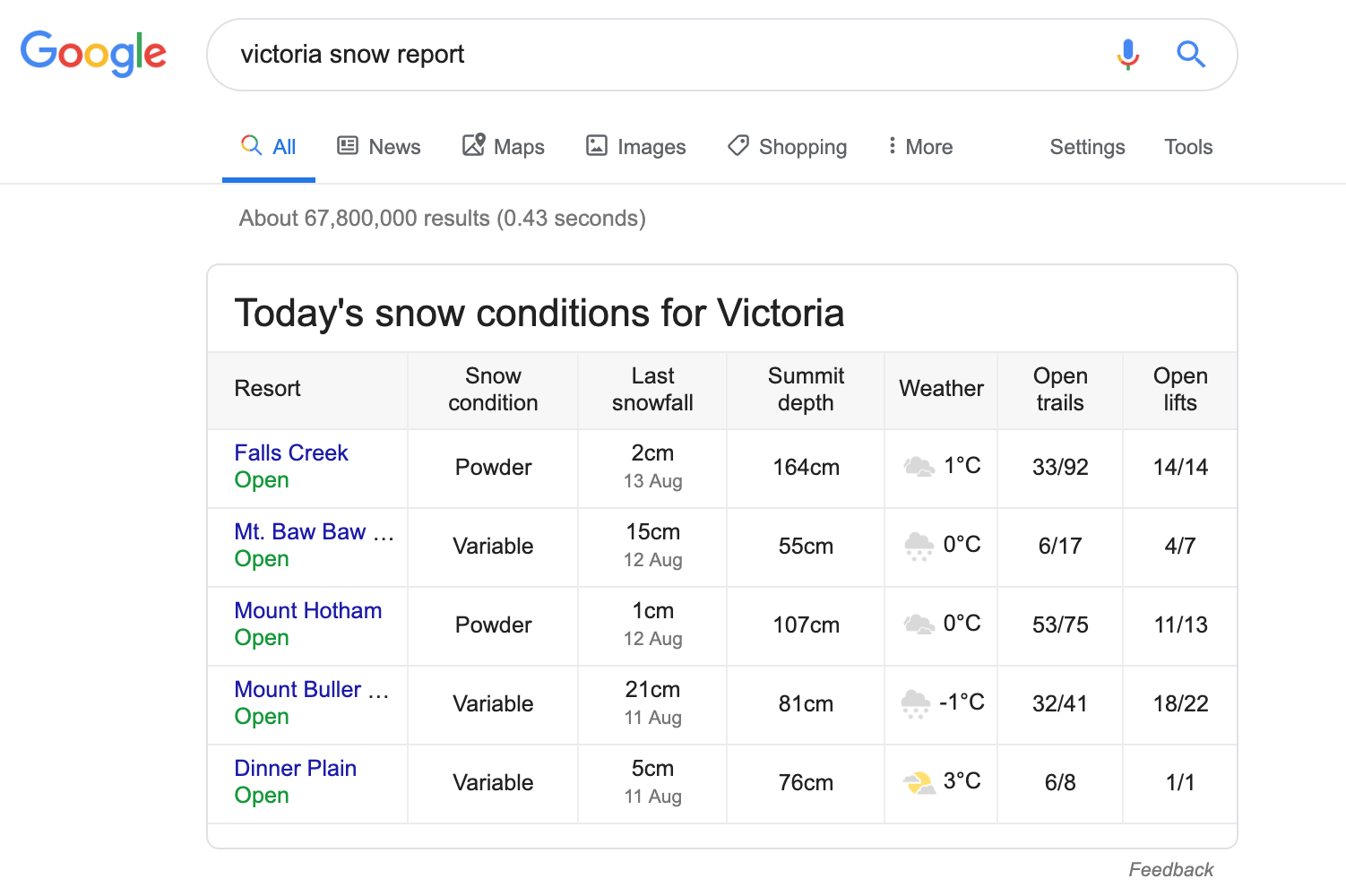
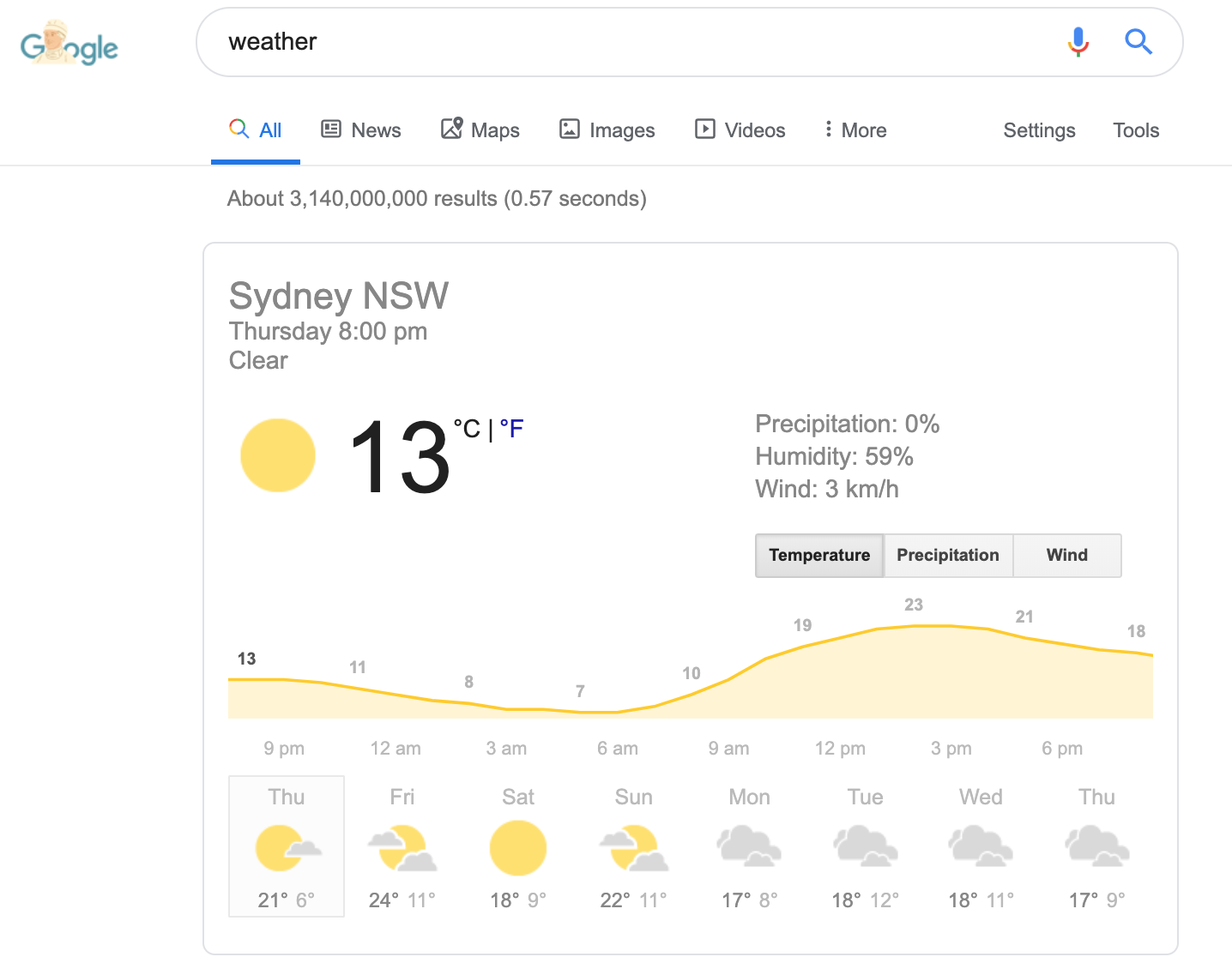
Thanks for the stats AFL…
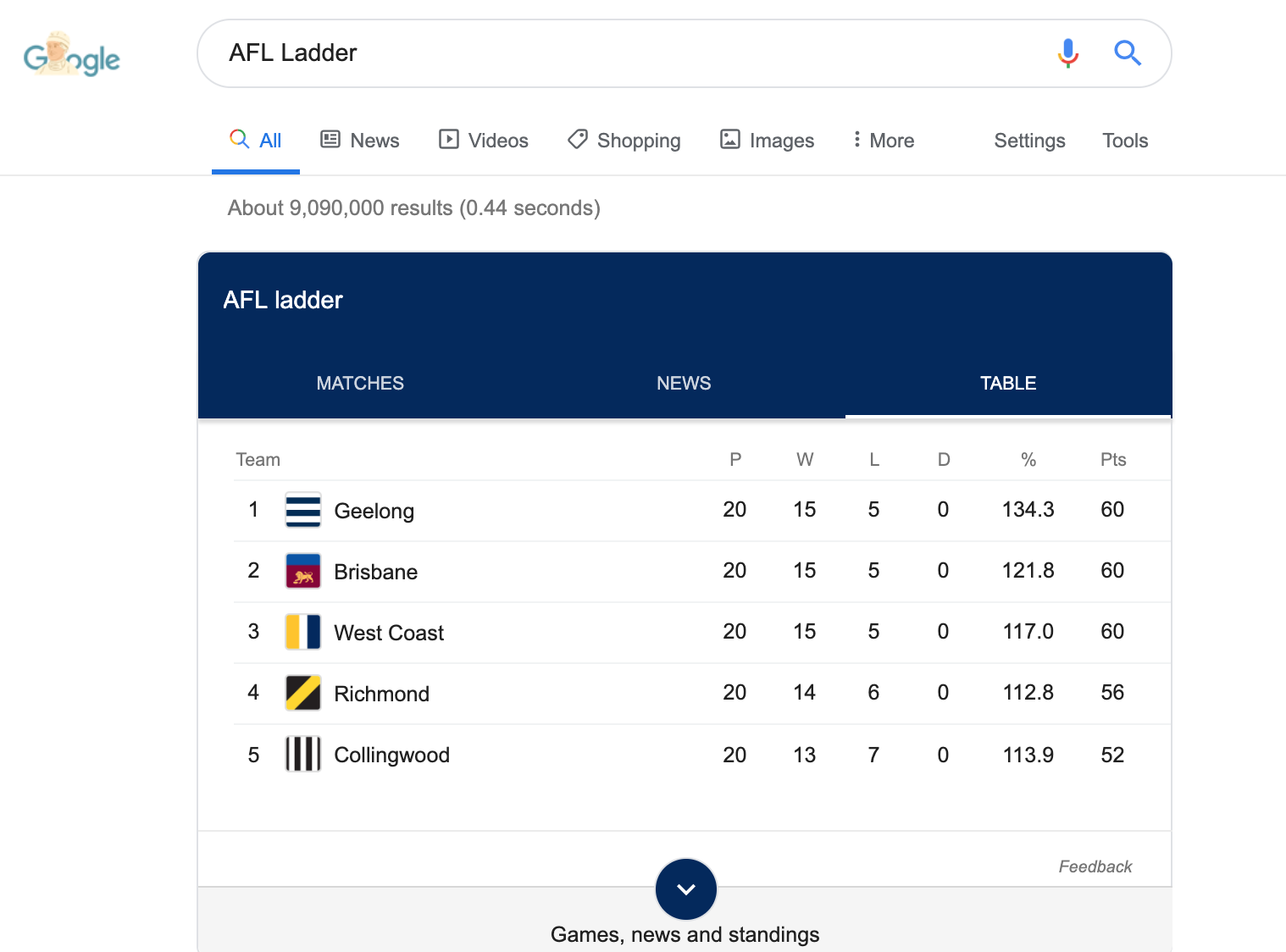
Introducing the Google travel agency…
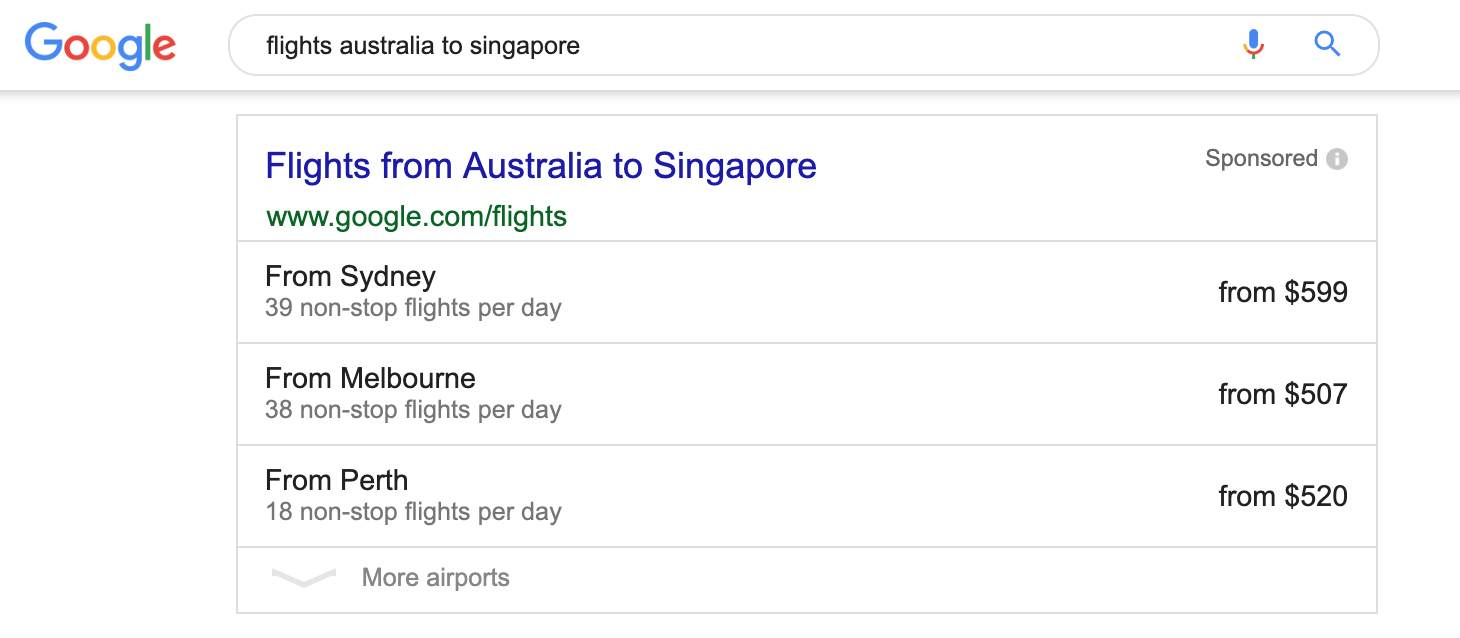
Instagram influencers lose their ‘influence‘:
The latest change to remove the likes count on Instagram has hurt so called influences who get paid on this metric. While facebook have claimed that this shift is to improve users well being and remove the stress of expressing themselves, I can’t help but think they don’t want the leakage of advertising revenue going directly to their users instead of the mothership. I wouldn’t be surprised if they launch an Instagram Influencers dashboard with metrics in the back end to control the money flows in the Influencer economy.
So, it seems the only thing we learn from business history, is that few people learn from business history. Just this week Australian TV news channels joined up with the Facebook platform to get their news to a wider audience. This too won’t end well for those providing the content. Contrary to what many people believe, content is not king. Distribution is more powerful than content – always has been, always will be.
How to manage the Platform Predicament?
So, do I practice what I preach? Yes. The most important piece in the Steve Sammartino portfolio is my own webpage and this blog. I own and control it. Around 5000 people read it each week – not a huge amount, but it’s enough to serve my personal business model.
Of course I use other peoples channels; Linkedin, Youtube, Twitter and Instagram – but my primary goal in using them isn’t to grow a business inside it, but rather to grow some seedlings which I’ll transfer into my own garden.
My advice here is simple. Always spread your platform and digital risk. Ensure you take a portfolio approach and invest in your own channels that you control. Always remember that incentives shape commercial behaviour and we should ensure we remember this for our own purposes too.
– – –
Be sure to check out the Latest Ep. of Future Sandwich Now-Soon-Later – we talk about how in the future you won’t own anything – 4 mins of goodness & insight click here. I’d love if you made a comment on Youtube as well.
Cheers, Steve.